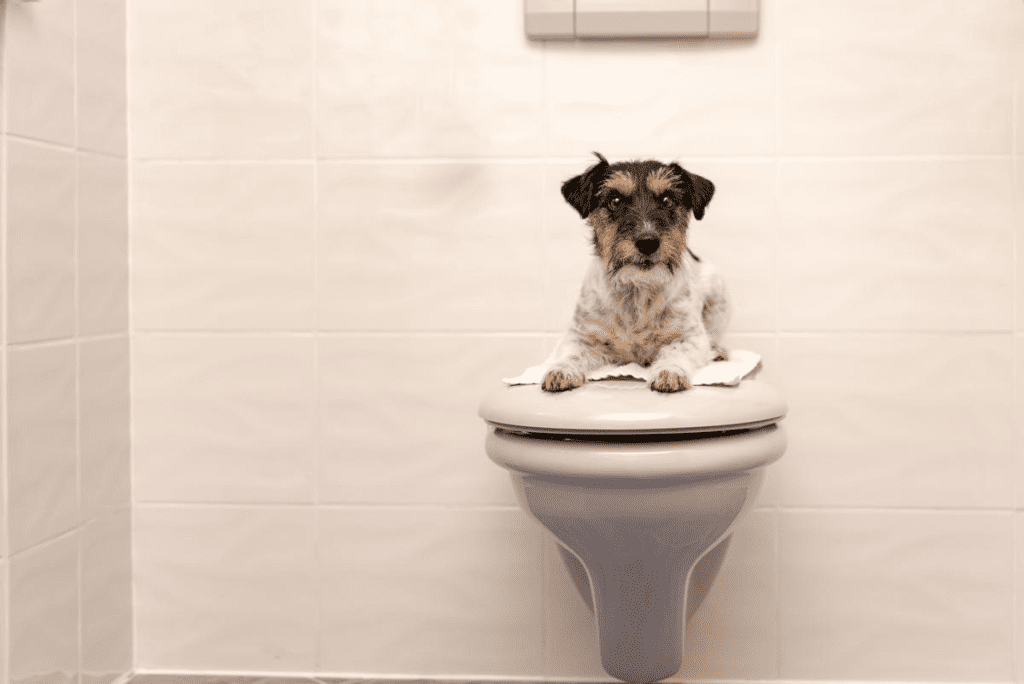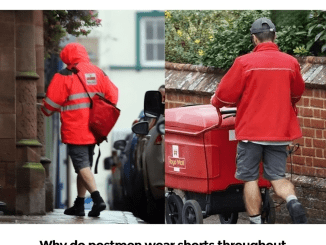Dealing with your pet’s waste is undoubtedly one of the less glamorous parts of pet ownership. Whether you have a dog, cat, or any other furry companion, responsible waste disposal is crucial. However, if you’ve ever considered flushing your pet’s poop down the toilet, a veterinarian has issued a stark warning that might make you think twice.
The Growing Concern: Flushing Pet Poop Down the Toilet

Recently, a veterinary surgeon known as @ben.the.vet on TikTok has taken to social media to warn pet owners against the common but potentially harmful practice of flushing their pets’ poop down the toilet. This warning has left many pet owners shocked and reconsidering their waste disposal methods.
Why Flushing Pet Poop Is a Bad Idea
You might think that flushing pet poop is a clean and convenient way to get rid of it, but according to experts, this practice can lead to serious health and environmental risks. Here’s why
The Presence of Toxocara in Animal Feces
One of the main reasons flushing pet waste is dangerous is because of a parasite known as Toxocara. Toxocara is a type of roundworm commonly found in the feces of dogs and cats. This parasite is particularly concerning because it is resistant to the high temperatures and harsh conditions found in the final stages of wastewater treatment.
The Zoonotic Risk: How Toxocara Affects Humans
Toxocara poses a significant zoonotic risk, meaning it can be transmitted from animals to humans. While the parasite doesn’t result in adult worms living in human intestines, as seen in some horror films, the real danger comes from the eggs of the parasite. When humans accidentally ingest these eggs, they can hatch inside the body and migrate to various organs, causing serious health issues.
Toxoplasmosis: Another Hidden Danger

In addition to Toxocara, pet feces can also contain Toxoplasma gondii, the parasite responsible for toxoplasmosis. According to the NHS, toxoplasmosis is usually harmless and resolves on its own, but it can be particularly dangerous for individuals with weakened immune systems and pregnant women. In these cases, toxoplasmosis can lead to severe complications, including damage to the eyes, brain, heart, or lungs, and in pregnant women, it can cause miscarriage or serious harm to the unborn baby.
The Impact on Cognitive Development in Children
Children are especially vulnerable to the dangers posed by Toxocara. Exposure to this parasite can reduce cognitive development and lower IQ levels in children. Although such cases are rare, the potential risks underscore the importance of proper waste disposal and regular deworming of pets.
What the Experts Recommend: Proper Pet Waste Disposal

Given the risks associated with flushing pet poop, what should pet owners do instead? Here’s what experts like Ben recommend:
Frequent Deworming
Regular deworming is essential to keep your pets healthy and reduce the risk of spreading parasites like Toxocara and Toxoplasma gondii. Consult with your veterinarian to establish an appropriate deworming schedule for your pet.
Using Appropriate Disposal Methods
Rather than flushing pet waste down the toilet, it’s best to dispose of it in the trash, following local waste disposal guidelines. This helps prevent parasites from entering the water supply and reduces the risk of environmental contamination.
Protecting Public Health

By adopting safer disposal practices, pet owners can play a crucial role in protecting public health. The risks associated with flushing pet poop may seem minimal, but taking precautions can prevent the spread of harmful parasites and keep both humans and pets safe.
Conclusion: Think Twice Before Flushing
The convenience of flushing pet poop down the toilet comes with hidden dangers that many pet owners are unaware of. From the risks posed by parasites like Toxocara to the potential impact on public health, the case against flushing is clear. Instead, opt for proper waste disposal methods and ensure your pets are regularly dewormed. By doing so, you’ll not only protect your own health but also contribute to a safer and cleaner environment for everyone.


